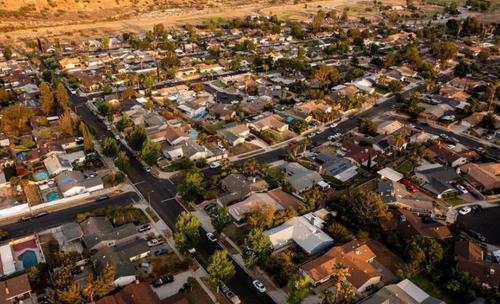White House Plans More Assistance For Troubled Mortgage Borrowers At Risk Of Foreclosure
A national foreclosure ban extended by the Biden Administration is set to expire one week from today. And in an effort to prevent a wave of foreclosures that would risk capsizing America's red-hot housing market, the Administration has devised a new program designed to offer more relief to homeowners who still can't afford their mortgage payments (typically, because their household income has yet to recover), WSJ reports.
Presently, homeowners are allowed to skip monthly payments for up to 18 months with no penalty (on the understanding they make them up later). But for borrowers who opted into the plan early in the pandemic, the relief will expire later this year (while banks will be allowed to resume foreclosures as of July 31).
That so many American borrowers need this assistance - which at best will function as a kind of band-aid, since borrowers will still need to make good on their debts - is a reminder that the torrid advance in home prices across the US might be vulnerable to a 2007-style reversal.
The Administration's planned changes aim to reduce monthly payments for borrowers by up to 25%, which is intended to align with modification options offered by Fannie Mae and Freddie Mac.
According to mortgage-data firm Black Knight, the vast majority of 1.55MM American homeowners who are seriously delinquent (meaning they haven't made mortgage payments in 90 days) are in active forebearance. This represents nearly 3% of the 53MM active American mortgages (down from a high of 4.4% last fall).
Without the new Biden Administration program, the housing market would soon be rocked by a wave of roughly 1MM foreclosures. This could create problems for the mortgage-backed security market, one-third of which is owned by the Fed. It could also send housing prices (especially in certain foreclosure-heavy markets) into a tailspin, which in turn would place pressure on lenders and borrowers alike.
Fortunately, most of the borrowers who are still postponing their payments have federally-backed FHA loans (typically available to lower-income borrowers) which means the White House can easily intervene.
To try and legitimize this, WSJ concludes with a reference to academic "studies" showing that deferring payments and reducing interest payments by extending the term of the mortgage are effective ways of aiding troubled borrowers. But at the end of the day, many will still be left shouldering a massive debt burden that they can no longer afford.
In which case, the day of reckoning may be delayed, but it can't be avoided entirely.
via IFTTT
InoreaderURL: SECONDARY LINK

